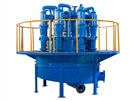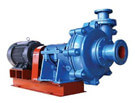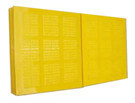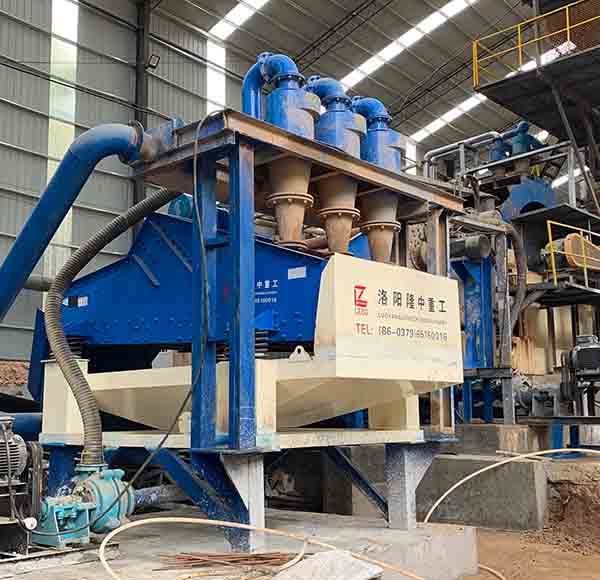Hot Product

- Hydrocyclone Group
Hydrocyclone group is widely used in coal preparation plant...

- Slurry Pump
Slurry pump is mainly used in mining, power plant, dredging, metallurgy...

- Polyurethane Dewatering Screen Panel
In addition to the performance of...
Parameters and Application of Small Diameter Cyclone
Date: 2021-06-16 From: Longding Author: admin
Common hydrocyclones have a diameter of more than 250mm, and the current larger hydrocyclones have a diameter of 750mm and a height of about 3~4m. Although the current equipment is in the direction of large-scale development, when processing fine-grained materials, a small diameter cyclone is also indispensable. The following describes the parameter models and applications of the small diameter cyclone and cyclone groups.
Model parameters of small diameter cyclone
The cyclone is mainly used in grinding and grading and dewatering of tailings. The commonly used small-diameter cyclones are φ150mm, φ100mm, and φ75mm, and the classification particle size is 20~74μm, which can meet the classification and concentration requirements of most fine-grained materials. The following lists the technical parameters of these three types of small-diameter cyclones to facilitate your equipment selection. If you don’t know how to select, you can refer to the article: How to select a hydrocyclone.
Small diameter hydrocyclone group
When the processing capacity is large and the grading particle size is coarse, a cyclone with a larger specification should be selected, and when the processing capacity is small and the grading particle size is fine, a cyclone with a smaller specification should be selected. However, the processing capacity is large and the required overflow particle size is relatively fine, so a small-diameter hydrocyclone group must be selected. This can not only meet the requirements of fine overflow granularity but also complete processing tasks as required.
For small-diameter cyclones with low unit processing capacity, LZZG uses multiple small-diameter cyclones in parallel to form a cyclone group to increase its processing capacity. Aiming at the problem of large fluctuations in cyclone indicators, we adopted a more reasonable cyclone diameter design, which effectively improved the cyclone’s ability to resist fluctuations in the feedstock. In view of the short service life of the cyclone, we use wear-resistant rubber as the cyclone lining, which greatly extends the life of the hydrocyclone.
Application of small diameter hydrocyclones
The inner lining of the hydrocyclone produced by LZZG is made of wear-resistant rubber, which effectively extends its service life. The small-diameter hydrocyclones and cyclone groups can be used for solid-liquid separation, concentration, ore desliming, and sand-water separation. It is required that the feed concentration is more than 10%, and the particle size is greater than 30μm.
Previous:The Application of Hydrocyclone Classifier in Tailings
Next:The Influence of The Inlet Velocity of The Hydrocyclone on The Classification Effect
Leave a Message
Here you can submit any questions and we will get back to you as soon as possible. We will not disclose the information you submit to anyone, please rest assured.



Inquiry